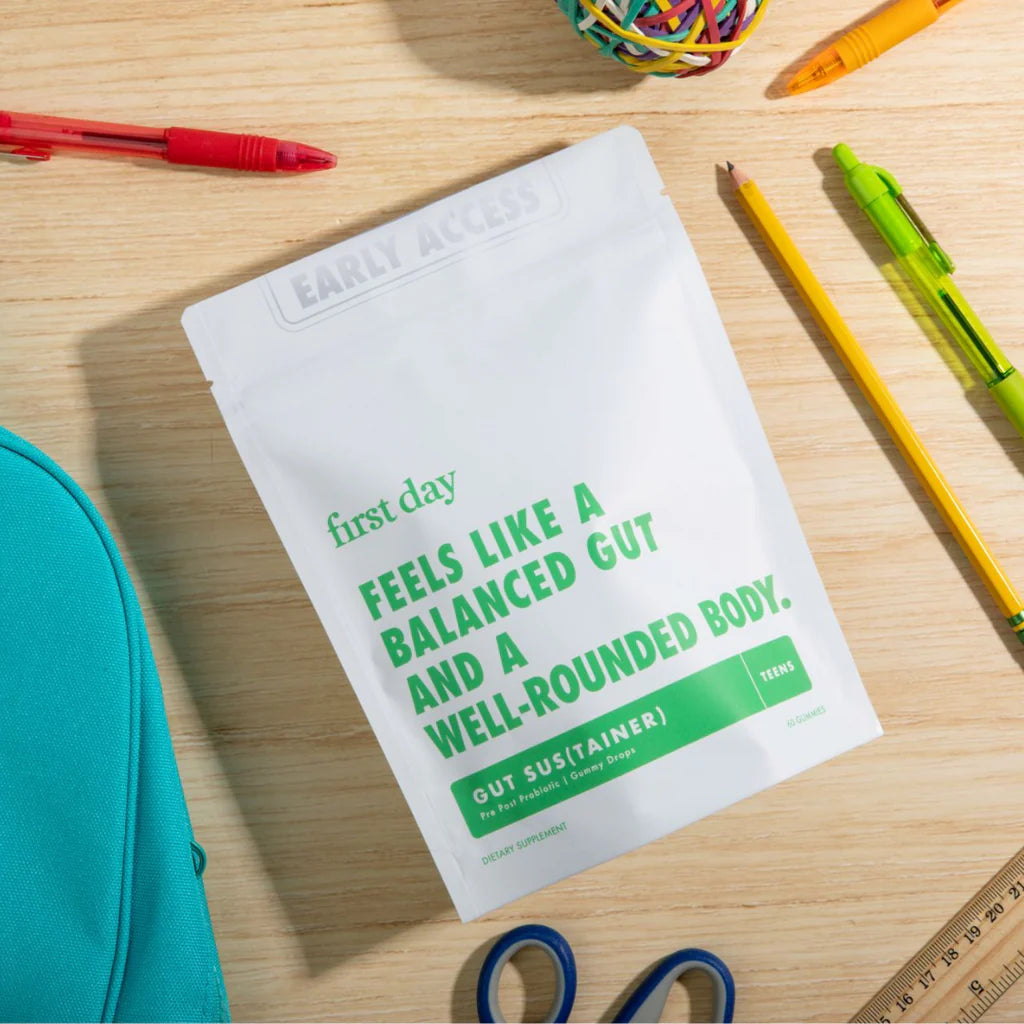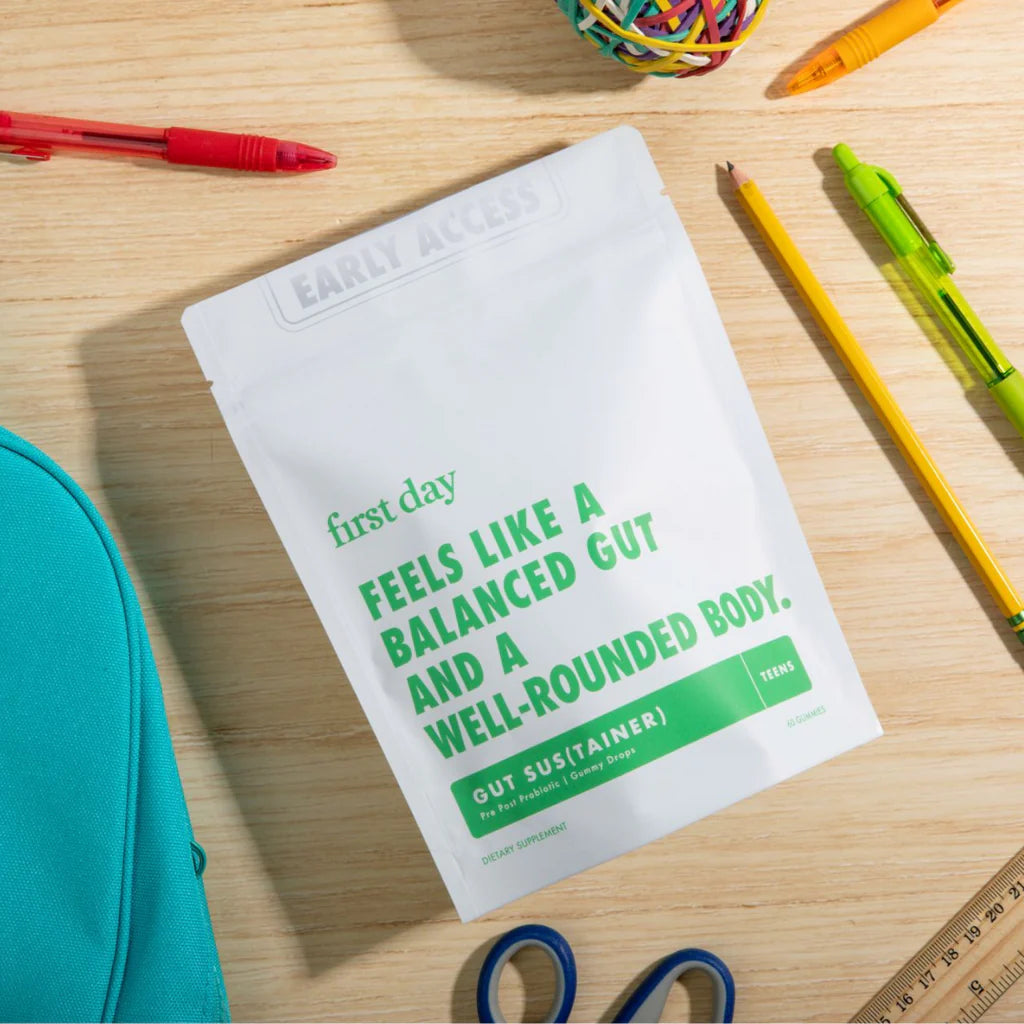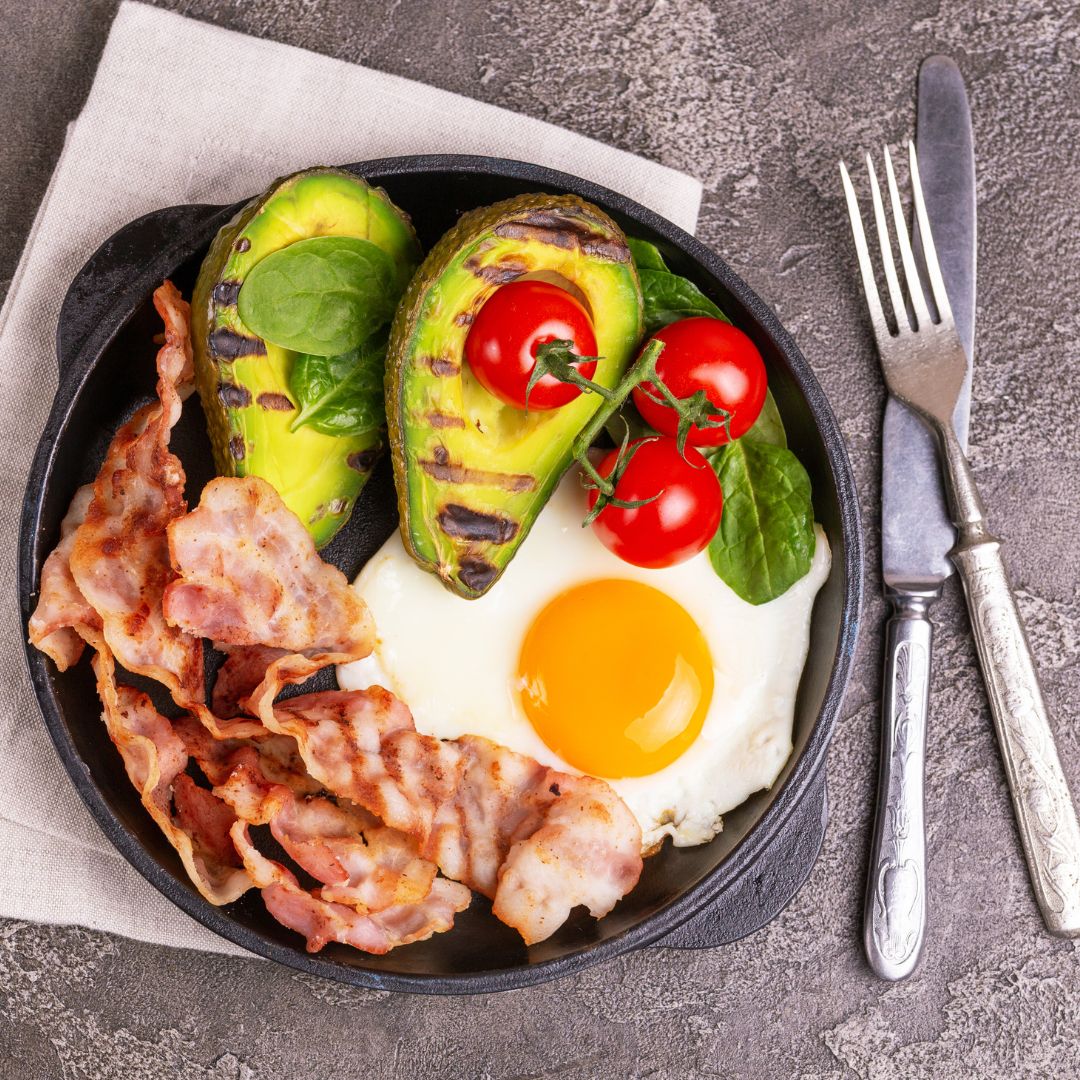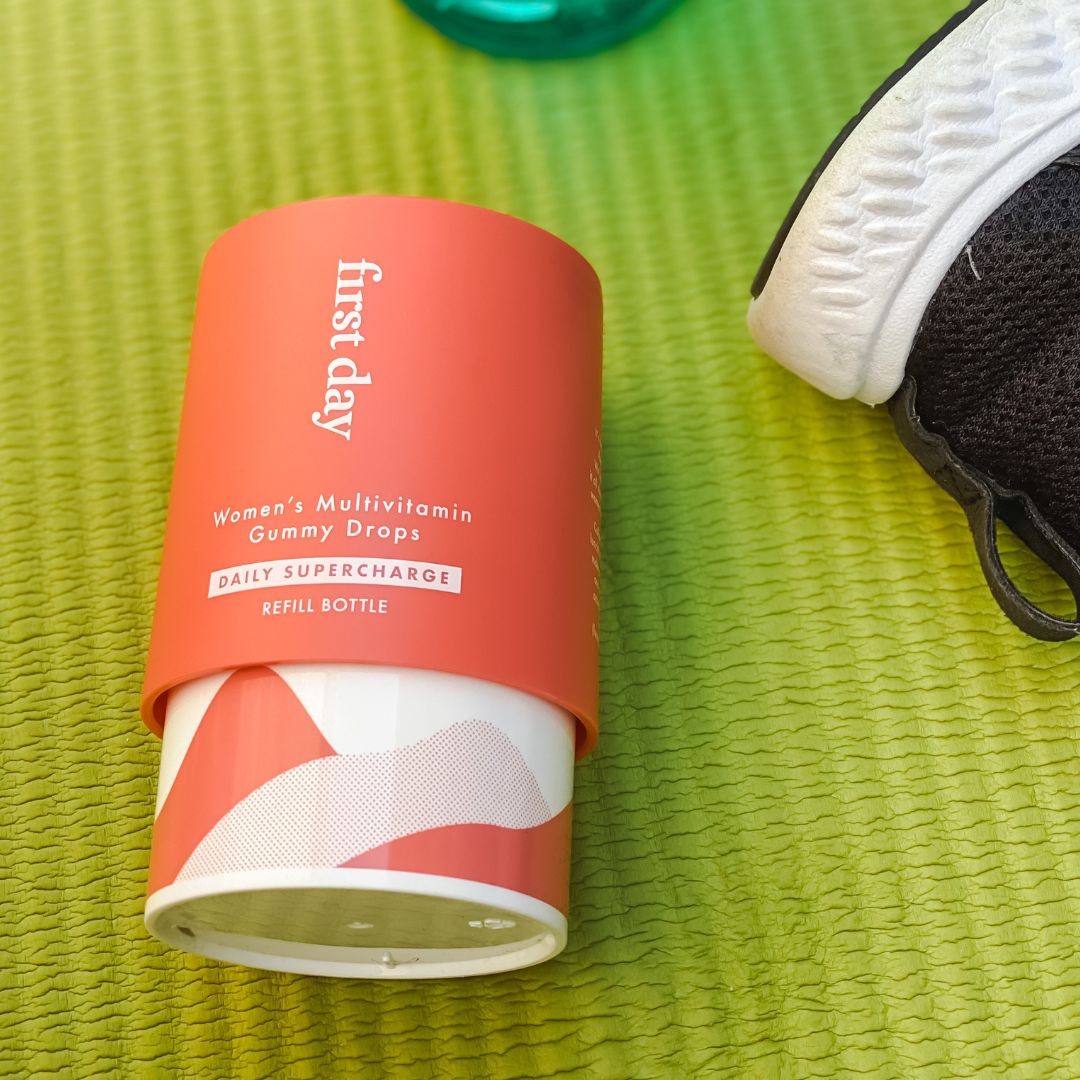Ah, the teen years! A whirlwind of changes, right? It's a blend of emotional rollercoasters, social mazes, and a range of physical transformations. As parents, we're on a constant watch, aiming to arm our budding adults not just to sail through these turbulent times but to emerge victorious, healthy, and happy. Among the various ways to brace our teens against the waves of puberty, one standout approach is healing from the inside out—starting with the gut. And what's the secret ingredient? You guessed it - probiotics for teens.
But hold on, what exactly are probiotics, and how can they fit seamlessly into our teens' day-to-day? Probiotics are live bacteria and yeasts, which can promote digestive health. They support and maintain a healthy balance within the body’s digestive system. Incorporating probiotics for teens can be a game-changer in nurturing their overall health.
In this blog post, we will dive into what probiotics are for teens, their importance, and practical ways to integrate them into your teen's routine.
The Basics of Probiotics For Teens
Probiotics are live microorganisms, usually bacteria, and sometimes yeast, that are good for your digestive system. We often think all bacteria are out to harm us, but these little guys are here to prove us wrong. These beneficial bacteria help keep the body's digestive system in balance.
There are several types of probiotics, but the most common families of live bacteria are Lactobacillus and Bifidobacterium. Under these families, there are different species, and each species has many strains. It's kind of like how dogs are all the same species, but there are many breeds, each with its unique characteristics. Lactobacillus is often found in Greek yogurt and other fermented foods and is great for helping your body digest lactose. Bifidobacterium hangs out in some dairy products and is a champ at easing symptoms of poor gut health.
At the same time, there's this whole other world of probiotics called spores such as the Bacillus species. Spore-based probiotics are essentially dormant forms of bacteria that spring to life once they hit the right environment in your gut. Unlike their live bacteria counterparts, which can be sensitive and sometimes don't survive the trip through the harsh acidic environment of the stomach, spore probiotics are tough. They're like the special forces of probiotics, encased in a natural protective shield, allowing them to make it to the gut unscathed where they can then get to work. This makes spore-based probiotics super effective, as they can survive the journey and colonize the gut more efficiently.
How Do They Work?
Now, how do these probiotics work in your body? Well, when you consume them—either through food or probiotic supplementation—they make their way to your gut and add to the population of good bacteria in your digestive system - your gut microbiota. This balance of bacteria is crucial because it helps digest food, destroy disease-causing microorganisms, and produce much-needed vitamins.
The really interesting bit is how medical research backs up their benefits. For example, studies show that a healthy balance of bacteria in your gut, supported by probiotics, is linked to a slew of health perks such as healthy digestion, better immunity, and even a lower risk of chronic diseases.
Why Probiotics Matter for Teens
Teens are growing at breakneck speed, both mentally and physically. This age is not just about visible changes; it’s about the invisible ones too. Inside that bustling body, a lot is happening - hormonal shifts, brain development, and yes, the constant battle against acne. Teens have unique health needs because they're in this intense period of growth and change. Their bodies require more of everything: more nutrients, more sleep (even if they argue otherwise), and more care in maintaining the balance of good and harmful bacteria in their gut. This last point might not make the family dinner conversation, but it's super important.
So, if you're wondering, "Okay, but why bother with these tiny bacteria?", the answer lies in their powerful benefits backed by science.
Digestive Health
First up, the battleground of the belly. Digestive issues like bloating, gas, and the dreaded constipation or diarrhea are no strangers to teenagers, thanks to their often less-than-ideal dietary choices (sorry, but it's true). Here’s where probiotics for teens can come in. They help restore the natural balance of gut flora, which is just a fancy way of saying they keep the digestive system humming along nicely. Studies have shown that strains like Lactobacillus and Bifidobacterium can improve gut health. For instance, research published in the Probiotics Antimicrob Proteins journal indicates that probiotics can slightly improve irritable bowel syndrome (IBS) symptoms, a common digestive disorder among teens. Essentially, probiotics for teenagers might just help make those stomach aches and awkward bathroom dashes a thing of the past.
Acne and Skin Health
Moving from the inside out, let’s talk skin. Acne, the arch-nemesis of smooth selfies, can be the bane of a teen's existence. But guess what? Probiotics for teens to the rescue again! These microorganisms can be allies in the fight against pimples by reducing skin inflammation and the presence of acne-causing bacteria. One recent study published in 2024 showed that oral and topical probiotics could decrease the number and severity of acne lesions, likely due to their anti-inflammatory properties. That's right, popping probiotics might actually lead to popping fewer pimples.
Immune Health
Your teen's immune health should always be ready to defend against the baddies - aka, germs and viruses. Probiotics can help in keeping the immune system in top-notch condition. You see, a large part of your immune system is housed in your gut -70-80% of all immune cells in the body to be exact-, which means a healthy gut flora plays a crucial role in fending off invaders.
According to a study published in the Cells journal, probiotics can enhance the body’s immune response, thereby increasing the production of natural antibodies. They also stimulate the activity of immune cells like the IgA-producing cells, T lymphocytes, and natural killer cells. This heightened state of defense readiness helps your body to more effectively fight off common infections, such as the flu and common cold, as well as more severe illnesses.
Furthermore, research has highlighted that certain probiotic strains can reduce the duration and severity of respiratory infections. A systematic review and meta-analysis concluded that probiotics supplementation was associated with a shorter duration of respiratory infections such as bacterial sinusitis, influenza, and pneumonia. This means not only could you be getting sick less often, but when you do catch something, probiotics might help you bounce back faster.
While there's no magic pill to prevent all illnesses, integrating probiotics into your diet could be a strategic move in reinforcing your immune function, putting you in a better position to fight off those pesky pathogens.
Tackling Oral Health in Teens with Probiotics
Okay, so we've talked a bunch about how probiotics are good for your gut, skin, and immune system, but what about your mouth? Yep, your chompers and the rest of your oral cavity can benefit from probiotics too. This might come as a surprise since we usually don’t connect the dots between bacteria and having a healthier mouth, but the science backs this up.
Research is showing that probiotics might play a key role in tackling some common oral health issues teens face, like plaque buildup. For instance, the strain Bacillus coagulans SNZ 1969®, found in our Teens Gut Sustainer, is a probiotic that is proven to support immunity, digestion, and oral health. It does this by reducing the bad bacteria that cause cavities.
This doesn't mean you should toss your toothbrush and rely solely on probiotics, but incorporating them into your oral health routine could give you an extra boost in keeping a pearly white smile.
Incorporating Probiotics into Teen's Diet

Here's the scoop: getting those probiotics into a teen's diet doesn't have to be a drag or a dramatic challenge. It’s about weaving them into the day-to-day in sneaky, yet totally cool ways. Who knew that boosting health could be as easy as eating or drinking some familiar foods, or making tiny tweaks to the daily routine?
Natural Food Sources of Probiotics
First things first, food! Probiotics are hiding in plain sight in some of the foods you might already love. Fermented foods are their hangout spots – think Greek yogurt, kefir, sauerkraut, kombucha, and kimchi. Some stats from the US Department of Agriculture Food Data Central found that Greek yogurt, being a dairy product, not only serves up a dose of probiotics but also comes packed with calcium and protein, making it a triple threat to health issues. This means grabbing a Greek yogurt could be one of the easiest and tastiest ways to introduce probiotics into a teen’s diet.
But hold up, it's not all smooth sailing. See, these naturally fermented foods come with a tiny hiccup - while they have probiotics as live bacteria thanks to the magic of fermentation, these live bacteria aren't exactly 'properly equipped'. That means when they make the trip past the harsh, acidic environment of your stomach, not all of them survive to tell the tale. Plus, by the time these foods reach your spoon or glass, the number of live cultures in them might've dwindled to just a handful. And let's be real, how much kimchi or Greek yogurt can one person eat in a day? Probably not enough to turn your gut into a thriving metropolis of beneficial bacteria.
That leads us to the crux of the matter - relying solely on foods like Greek yogurt for probiotic benefits might leave you a bit shortchanged. Your gut is craving a diverse range, full of prebiotic fibers and a variety of probiotics to really flourish.
Probiotic Supplements for Teens
Not a fan of fermented foods? No problem! Probiotic supplements are here to save the day. They come in various forms - pills, powders, and even gummies (because who doesn’t love gummies?). However, it’s important to choose wisely. Opt for supplements that have been tested for safety and efficacy - while are yummy so your teens can enjoy them. Probiotic gummies can help teens create a healthy digestive system and improved immune health, without the need to radically change their diets.
Now, here’s the lowdown on how we, at First Day, are revolutionizing the probiotic game, especially for teens. Drumroll, please… We present to you our Teens Gut Sustainer that packs not one, not two, but all three essential biotics into a single yummy gummy! That’s right, we’re talking about the trio that’s making headlines for their combined gut, immune, and skin health benefits. And guess what? They're designed to not only taste delicious (so you’re not wrestling your teen every morning to take their supplements) but also to be a blast to eat.
But wait, there’s more! Our Tribiotic gummies are formulated with clinically studied strains known for their effectiveness—no guessing games here. They're all about supporting nutrient absorption so your teen can benefit fully from their diet. And for the cherry on top, our gummies come with up to 50% less sugar and absolutely no artificial sweeteners, colors, or flavors. Because why add more of the bad stuff when you’re trying to boost health?
Making Small Changes with Big Impact
Incorporating probiotics into a daily routine can be as simple as swapping out regular foods for their probiotic-rich versions. Switch your morning cereal for a bowl of yogurt with fruit, or replace your regular afternoon snack with a kombucha drink. The key is consistency as regular consumption of probiotic-rich foods can significantly improve the gut flora balance. This daily, consistent intake can lead to long-term improvements in health.
But if you’re thinking - teens and suggested health routines don’t always mix. Here’s where a bit of creativity comes in.
- Make it a family affair; incorporate more probiotic-rich foods into family meals.
- Lead by example; if they see you munching on kimchi, they might give it a go.
- For our Teens Gut Sustainer, keep them in sight, perhaps next to the cereal box or the fruit stash.
- And remember, education is key. A gentle nudge about how probiotics could improve their skin or boost their immune system (because who likes being sick during exam week?) might just do the trick.
Final Thoughts: Take Charge of Your Teen's Health With Our Probiotics for Teens
In the end, no one's expecting you to turn into a health guru overnight, especially when it's about getting teens on board. It's all about those little steps and choices that lead to big leaps for their health. And hey, if it can taste good while doing good, why not, right? Our Teens Gut Sustainer is pretty much a win-win in that department.
Office of Dietary Supplements - Probiotics. (n.d.). Ods.od.nih.gov. https://ods.od.nih.gov/factsheets/Probiotics-HealthProfessional/#:~:text=The%20seven%20core%20genera%20of
Casula, G., & Cutting, S. M. (2002). Bacillus Probiotics: Spore Germination in the Gastrointestinal Tract. Applied and Environmental Microbiology, 68(5), 2344–2352. https://doi.org/10.1128/aem.68.5.2344-2352.2002
Kechagia, M., Basoulis, D., Konstantopoulou, S., Dimitriadi, D., Gyftopoulou, K., Skarmoutsou, N., & Fakiri, E. M. (2013). Health Benefits of Probiotics: A Review. ISRN Nutrition, 2013(1), 1–7. https://doi.org/10.5402/2013/481651
Pratt, C., & Campbell, M. D. (2019). The Effect of Bifidobacterium on Reducing Symptomatic Abdominal Pain in Patients with Irritable Bowel Syndrome: A Systematic Review. Probiotics and Antimicrobial Proteins. https://doi.org/10.1007/s12602-019-09609-7
Abdullah Alyoussef. (2024). The Impact of Consuming Probiotics and Following a Vegetarian Diet on the Outcomes of Acne. Curēus. https://doi.org/10.7759/cureus.51563
Wiertsema, S. P., van Bergenhenegouwen, J., Garssen, J., & Knippels, L. M. J. (2021). The Interplay between the Gut Microbiome and the Immune System in the Context of Infectious Diseases throughout Life and the Role of Nutrition in Optimizing Treatment Strategies. Nutrients, 13(3), 886. https://doi.org/10.3390/nu13030886
Mazziotta, C., Tognon, M., Martini, F., Torreggiani, E., & Rotondo, J. C. (2023). Probiotics Mechanism of Action on Immune Cells and Beneficial Effects on Human Health. Cells, 12(1), 184. https://doi.org/10.3390/cells12010184
Darbandi, A., Asadi, A., Ghanavati, R., Afifirad, R., Darb Emamie, A., kakanj, M., & Talebi, M. (2021). The effect of probiotics on respiratory tract infection with special emphasis on COVID-19: Systemic review 2010–20. International Journal of Infectious Diseases, 105, 91–104. https://doi.org/10.1016/j.ijid.2021.02.011
nutraingredients-usa.com. (2020, February 17). Bacillus Coagulans SNZ 1969; Efficacy & Stability. Nutraingredients-Usa.com. https://www.nutraingredients-usa.com/Product-innovations/Bacillus-Coagulans-SNZ-1969-Efficacy-Stability#:~:text=SNZ%201969%20has%20been%20shown
FoodData Central. (2020). Usda.gov. https://fdc.nal.usda.gov/fdc-app.html#/food-details/171304/nutrients






